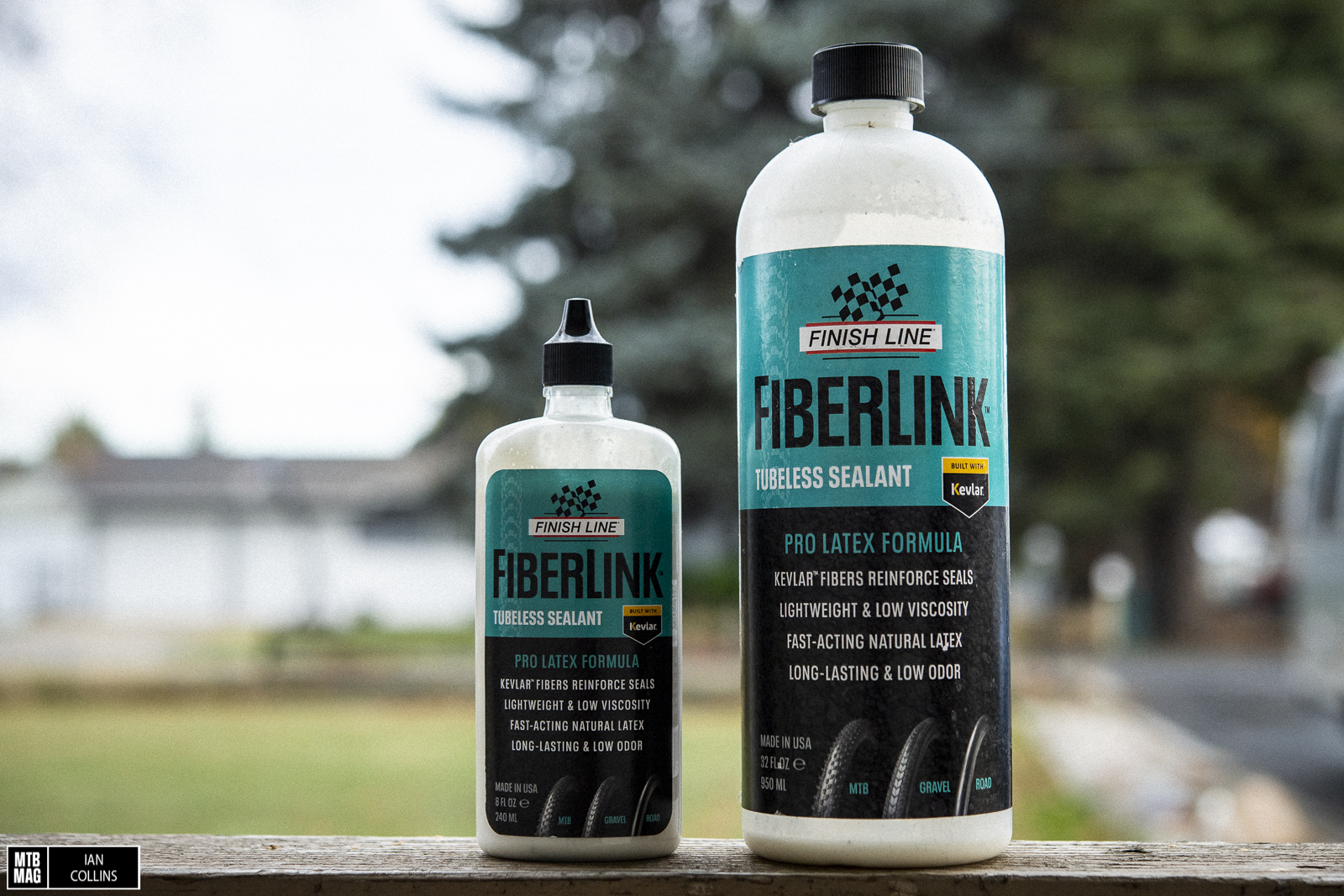![[Tested] Finish Line FiberLink Tubeless Sealant](https://www.mtb-mag.com/wp-content/plugins/accelerated-mobile-pages/images/SD-default-image.png)
![[Tested] Finish Line FiberLink Tubeless Sealant](https://www.mtb-mag.com/wp-content/uploads/2021/12/IMC_5538.jpg)
Finish Line FiberLink reviewed.
It’s been quite some time since I’ve used any products from Finish Line, but back in my Downhill racing days it was my brand of choice as they made some great products and supported a few grass roots race teams on the East Coast, where I grew up. Recently, the brand took the dive into the tubeless tire sealant game with their new FiberLink fluid. Beginning in late Summer/early Fall, I installed the latex sealant into a couple of sets of tires for some long term testing. Read on to see how it’s been working out…


A clear and easy dosage guide is right on the label with a QR code for a bit of help if need be. For my 29″ wheeled bikes I stuck with the somewhat generous 4-5 ounces.
If you’re trying to avoid using a cup like me, the gradients on the side are also actually quite helpful in getting a reasonably accurate pour.
The fluid itself is actually fairly thin and slippery – not really all that foamy and doesn’t have a whole lot of solid matter.
You can however see a few flecks of black matter if you look closely.
As mentioned earlier, dosage was easily guided, but as far as installation goes, there isn’t really a way to connect straight to the valve. Personally, I rarely inject fluid in my tire this way and rather, I typically just crack the tire bead and pour it in. Anyhow, I received the 8 ounce and 32 ounce bottles for review and the 8 ounce bottle, pictured below, does have a nice little nozzle tip but it wasn’t really made for hooking up to a valve. In any case I topped things off and inflated the two sets of tires that I tested Fiberlink in with no issues. Both sets inflated no problem with a standard floor pump. Once on trail, over my period of testing on two separate bikes I had just one small cut from an impact with a rock. It sealed up fairly quickly, without much fluid loss and without needing a plug. I spun the wheel a few times, gave it a few minutes to set up and then topped the pressure off with a CO2 cartridge. I haven’t touched that tire since and have been riding it from that point a couple of months ago, until today with zero issues. As far as burps go, I don’t personally tend to run mega low tires pressures, so I can’t really comment too much as I rarely burp my tires regardless of what’s inside of them…All I can say is that I didn’t have any fluid loss at the tire beads.
I was a bit surprised to hear from Finish line that Fiberlink can easily last up to 4 months, which is on the longer side of things. They actually claim that their sealant is the longest lasting option on the market. That claim is of course tempered by the fact that longevity naturally varies based on a few factors like riding conditions, temperature, and whether or not sealant is lost due to punctures and/or burps. In any case I waited the full four months before cracking open one set of tires to see how it was working out.
What I found inside was that while there was some evaporation, there was quite a bit more liquid than I expected to find and the fluid that was there was still very viscous and slippery. Unlike some sealants I’ve used in the past, it hadn’t dried out and gotten thick and rubbery. Another aspect worth noting is that Fiberlink left minimal residue lining the inside of my tires – a pet peeve of mine.
Rather than leaving the tires with a thin rubbery lining, there were simply some leftover solid bits that brushed out much more easily than trying to peel off a thin gooey layer. All in all, I’ve been very impressed with this sealant – particularly for a debut effort.
Today Crankbrothers is launching two new sets of handguards dubbed the Guardian Universal and Guardian…
This past Fall I had an opportunity to test the new Transition Sentinel and was…
If you’ve removed all of your volume reducers but still aren’t getting enough travel on…
After close to a year's time spent aboard the newly updated MY25 Fox 38, it's…
Last Winter Push Industries unveiled a new shock dubbed the SV Eight. The new damper…
In July I attended the launch of a new bike which I've given very high…